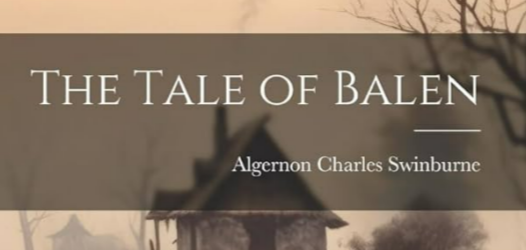Chapter V‑The tale of Balen
byChapter V – The tale of Balen begins not with triumph but with a somber reminder that even the noblest intentions can carry unintended weight. A deep sorrow follows Balen as Merlin speaks of a future cursed by his hand, a future where three kingdoms would suffer for over a decade. The wizard’s warning is not given in anger but in solemn reflection, as if Balen’s fate has already been carved in stone. His heart, though courageous, is heavy with guilt and resignation, for the accidental death of a lady has sealed a prophecy he cannot outrun.
Balen, accompanied by his steadfast brother Balan, continues on their journey in silence, their armor gleaming but spirits dimmed by Merlin’s words. Their names are spoken with reverence and fear, though their identities often go unnoticed behind visors and shadows. When they next encounter Merlin, he has taken a new form, cloaked in mystery and wisdom, guiding them once more with riddles that speak of looming battles and a crownless king’s folly.
They are led to a place where night conceals more than darkness—King Ryons, unaware of what fate awaits, travels to meet a hidden lover. It is there, under the cover of trees and moonlight, that Balen and Balan strike, not in cruelty but in courage, capturing the king in a decisive ambush. The news of their feat spreads swiftly, astounding Arthur and earning the brothers not only praise but a deeper entanglement with the prophecies that trail them like shadows.
Merlin’s voice again speaks of coming glory, but it is laced with sorrow, as though the future offers no true reward—only fleeting moments of victory before the descent. This tone haunts the brothers, yet their resolve does not falter, for knights do not live by ease, but by duty etched in the heart. In the following days, as armies gather and drums echo across the hills, the stage is set for a greater war that will test them beyond strength and steel.
The tale turns to the clash of kingdoms, where war cries rise like thunder, and blades draw the breath of destiny with every swing. Balen and Balan fight not just with skill but with a purpose few understand—each strike driven by honor, not hatred. Their courage shifts the battle’s tide, inspiring those who once doubted and shaking the foundations of even their enemies’ resolve.
In the fury of the conflict, King Lot—a figure both noble and flawed—is slain by Pellinore in a duel that marks the war’s climax. Though his fall signals a tactical triumph, it also births tragedy; Lot’s death sends ripples through the hearts of many, none more so than his wife. Her grief is not merely for a fallen king, but for a man whose decisions, though his own, were influenced by love and pride.
King Arthur, while victorious, does not let celebration cloud his conscience. He understands that every life lost carries weight and that his rule must be shaped not by conquest alone but by wisdom earned through bloodshed. Balen and Balan, watching from the fringes of this uneasy peace, remain aware that their greatest trials are yet to come.
Their path, though marked by victory, grows darker with each prophecy fulfilled. They do not seek fame, though it clings to them, nor do they crave power, yet it chases them through battlefield and court alike. What they desire—peace, redemption, perhaps even anonymity—remains elusive, slipping further away with every act of bravery.
In the world of Arthurian legend, stories like Balen’s serve as reflections on the nature of destiny. The conflict between free will and prophecy is woven into each encounter, each decision made under pressure and fear. These knights, though armored in steel, are vulnerable to the same uncertainties that touch every life, reminding readers that legend is not immune to tragedy.
Historically, this chapter echoes motifs common to medieval literature: noble sacrifice, divine retribution, and the tension between fate and agency. The actions of Balen and Balan would later inspire reinterpretations of the hero’s journey, blending myth with human complexity in a way that speaks across time. Even today, the tale continues to invite reflection on whether greatness is defined by glory or the endurance of suffering that comes with it.
By the end of this chapter, the grandeur of chivalry has been both elevated and questioned. Heroism, while honored, is shown to come at a steep cost, and the lines between victory and loss are blurred. Balen’s tale reminds us that fate may favor the bold, but it rarely spares them.

